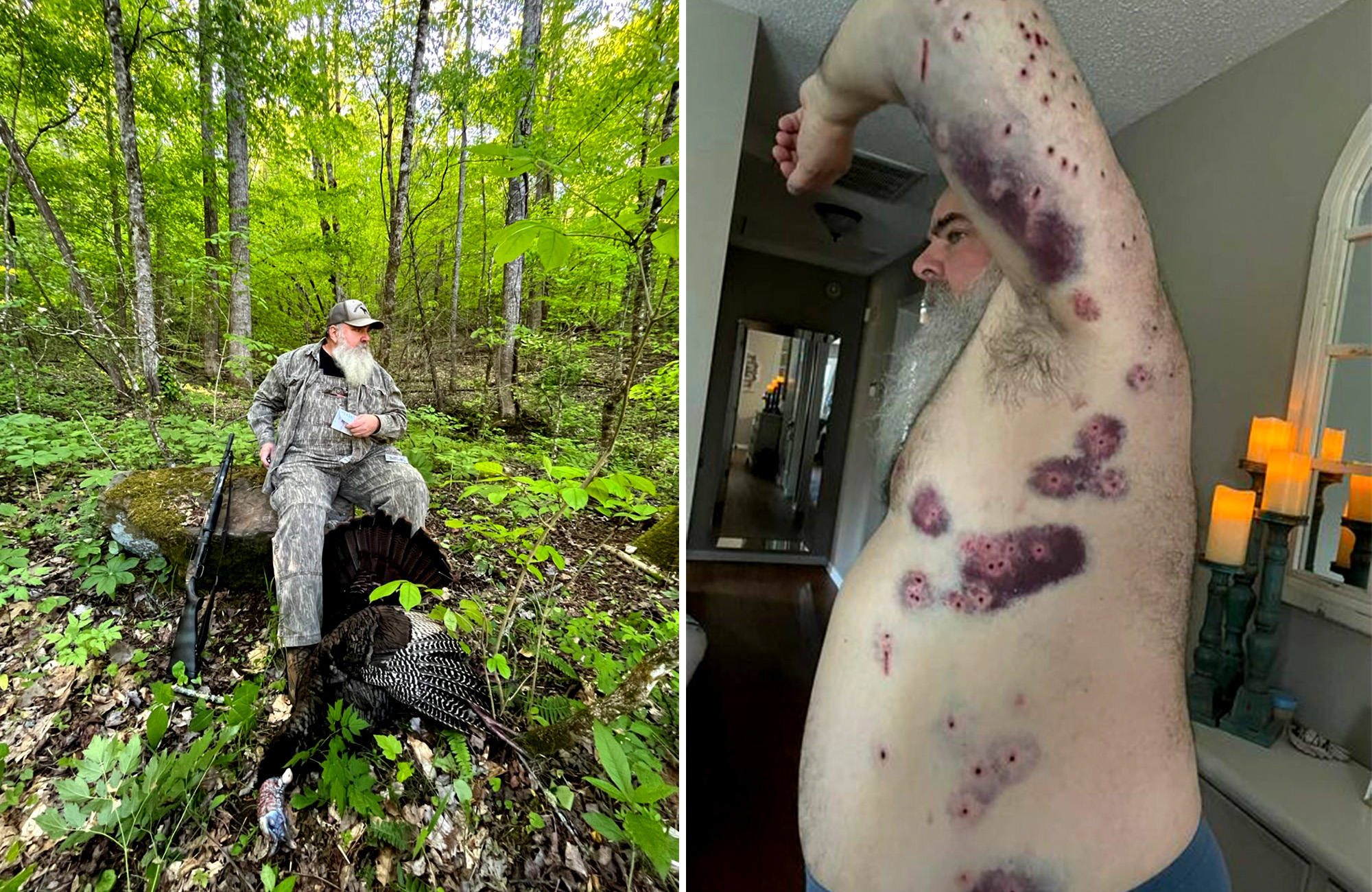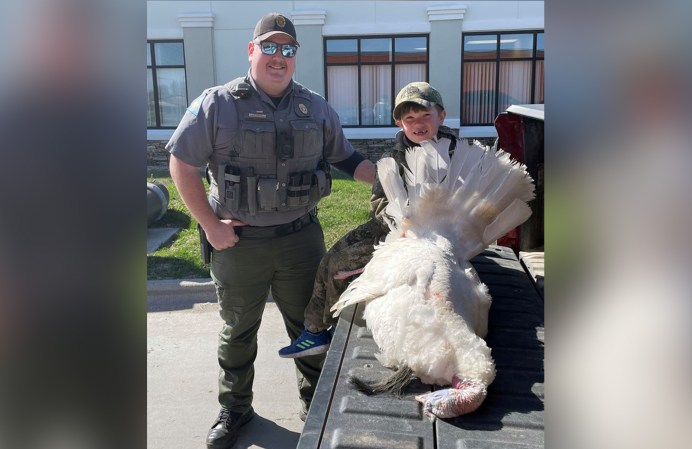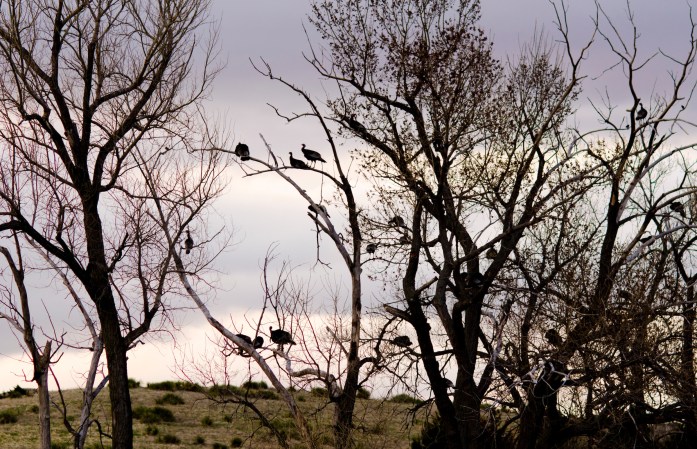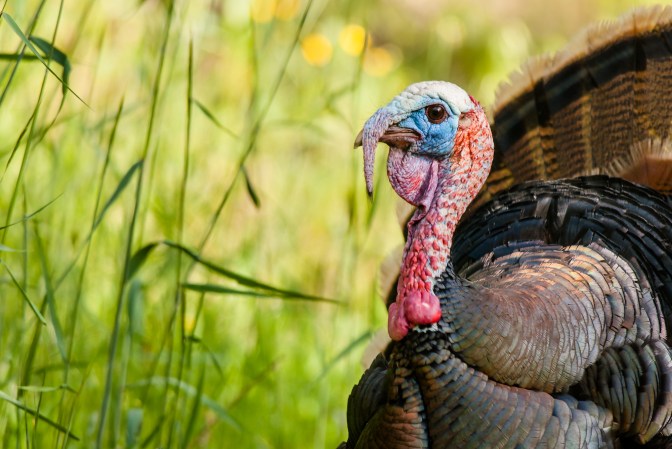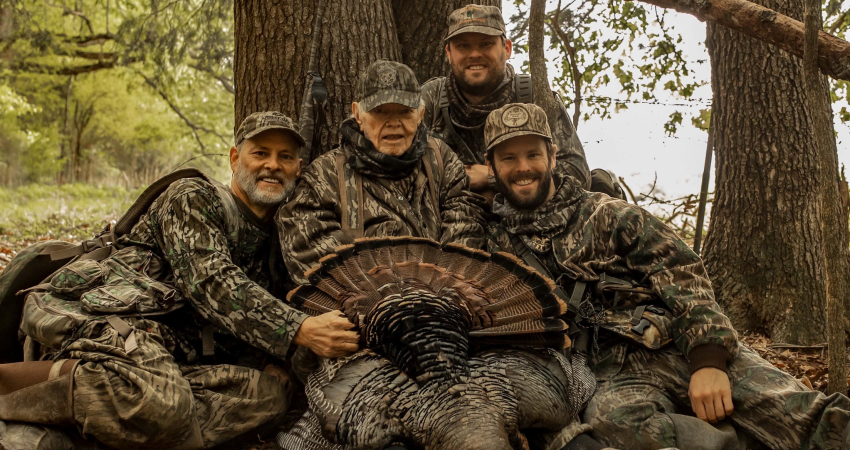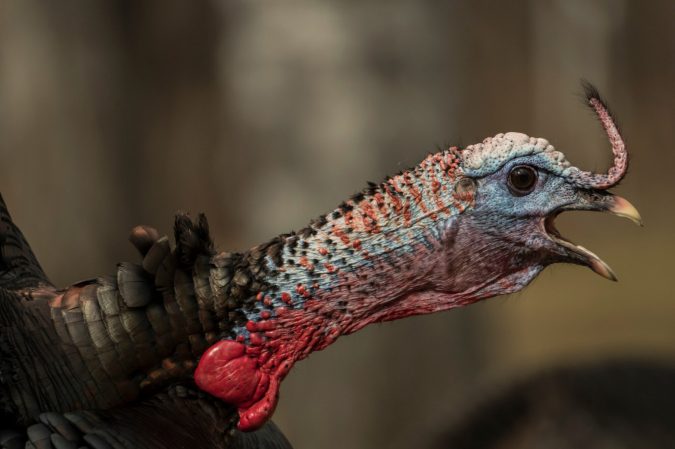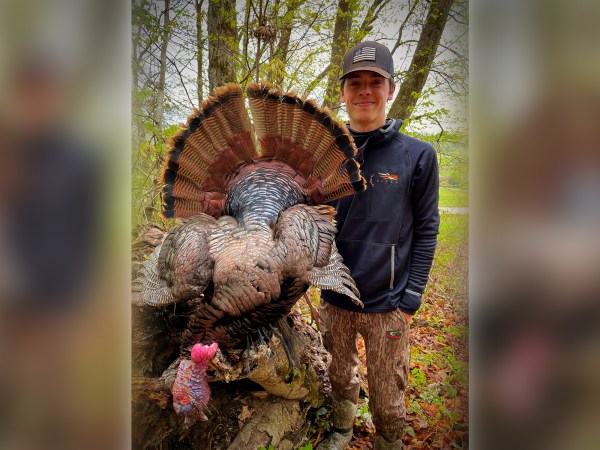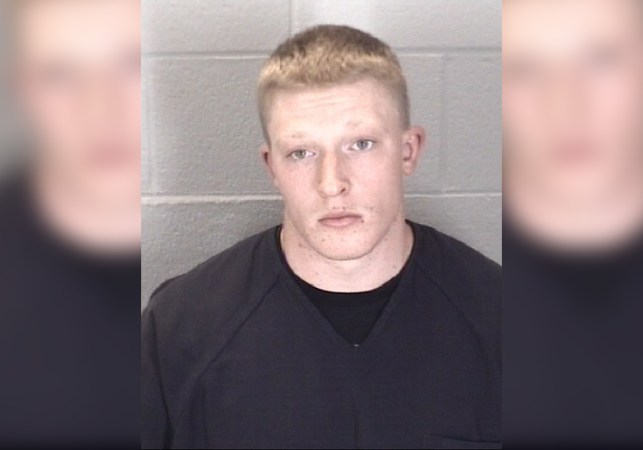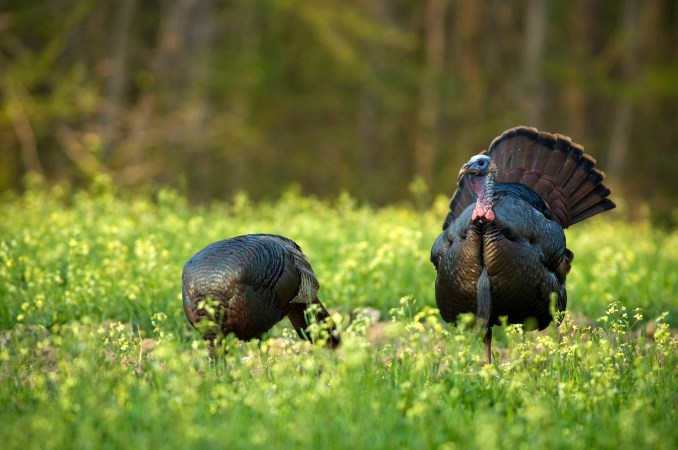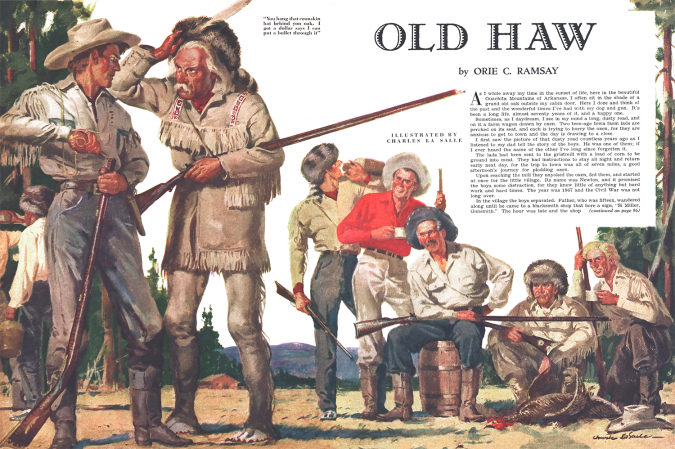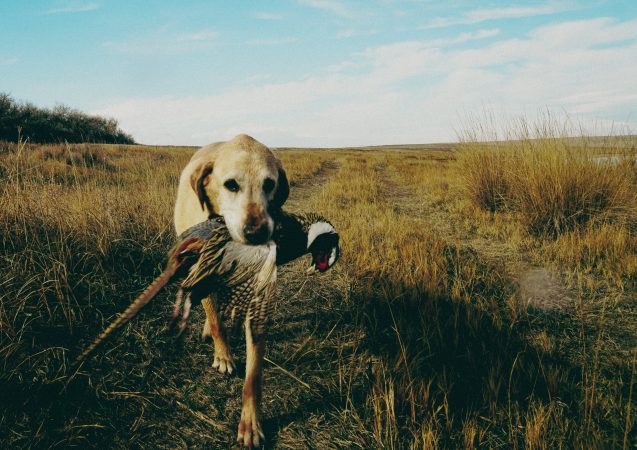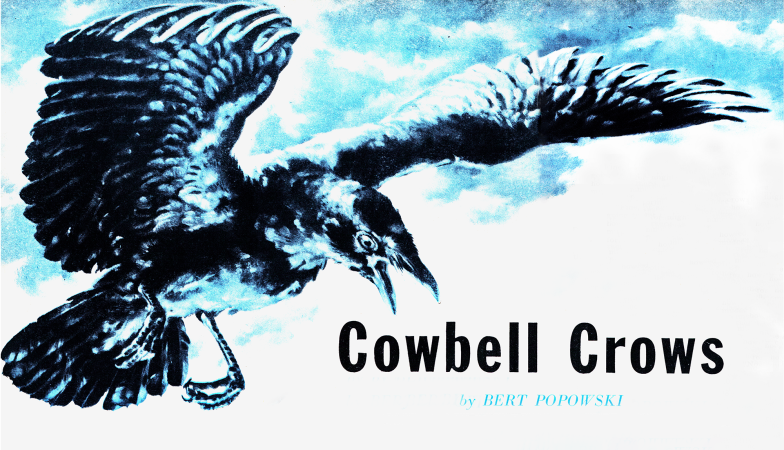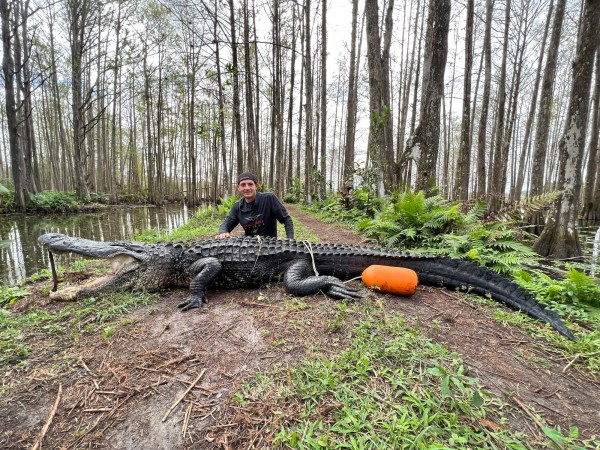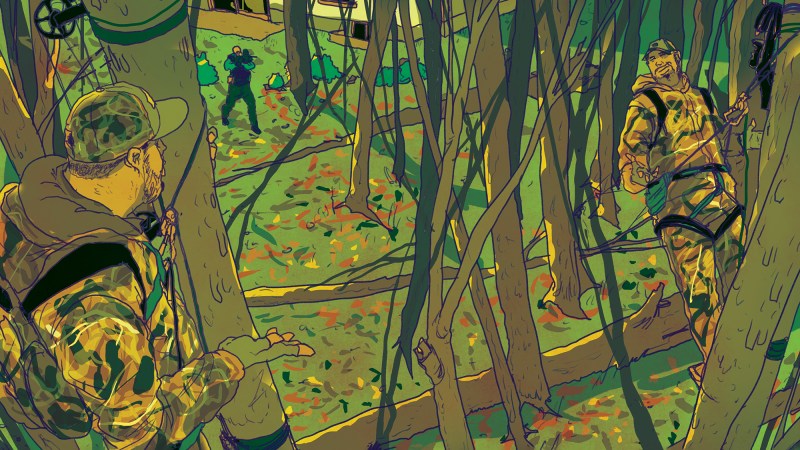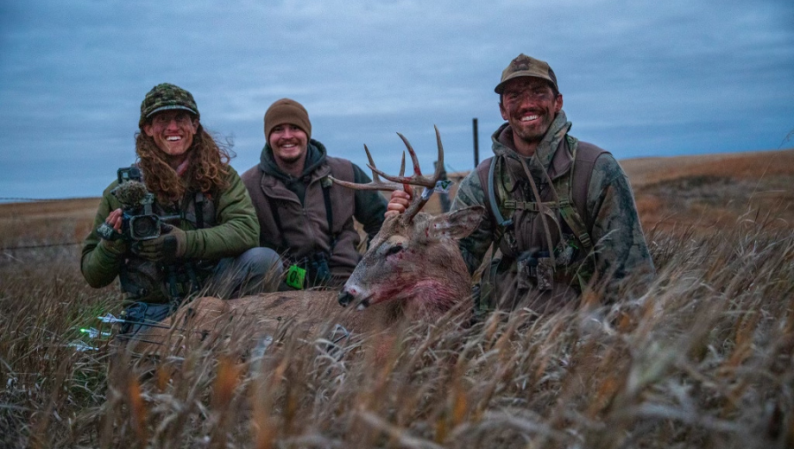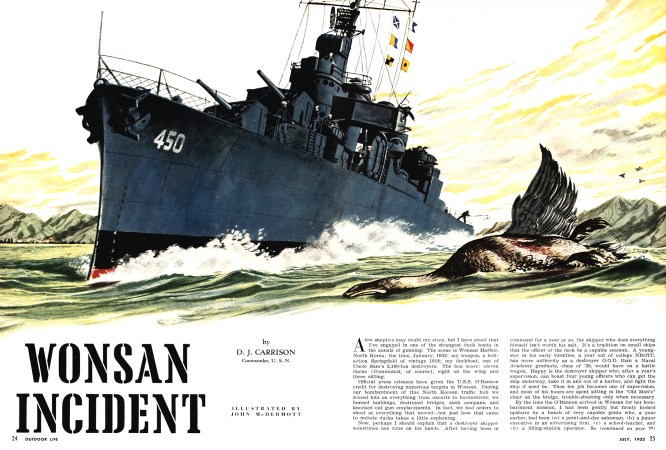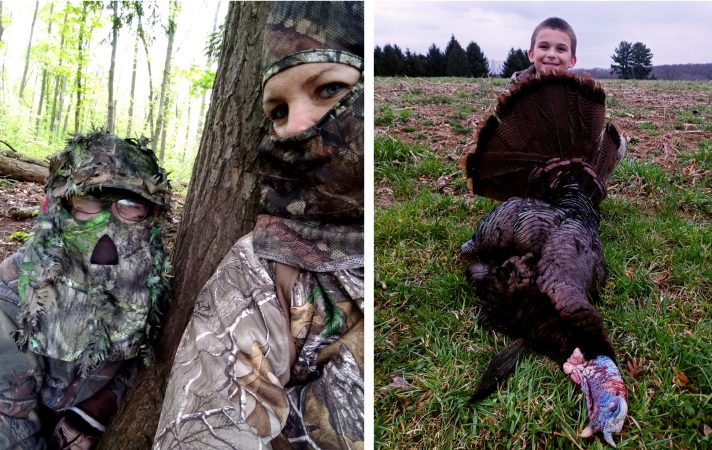Raymond Bunn of Sylva, North Carolina is, as they say in the western part of the state, “mountain.” He’s self-reliant in the extreme, quick to help another, and deeply at home in the woods. A man of gentle passion, Bunn is a gunsmith with a deep knowledge of firearms; the only man I’m willing to trust with family heirloom shotguns. He’s a man who reads widely, offering references to things he’s read at perfect times in wholly unpretentious ways. He’s also a kind man with whom I deeply enjoy sharing a table, where I am guaranteed to find good food and great stories. But most of all, Raymond Bunn is a hunter, particularly a turkey hunter.
The mutual friend who introduced us called Bunn “the woodsiest man I know.” And listening to Bunn tell us about his younger days, when his wife would drop him on a mountain ridge 25 miles away from home so he could “hunt [his] way back to the house,” I believed him.
Accordingly, when Bunn talks about hunting gobblers, I listen closely. (I’ve been trying to figure out turkey hunting for 20 years, and the only thing I am confident about is that the fastest way to learn is from a man like Raymond Bunn.) He is characteristically generous in that pursuit as well, his stories often revolving around the joy of calling in a first tom for someone else. Bunn’s eyes crinkle at the edges as he smiles through a beard gone silver-white over 62 years and 41 turkey seasons.
With turkey season opening on April 8, Bunn planned to travel from his home in the mountains to the eastern North Carolina hunting camp where he and his friends have gone for decades. I’ve visited them there several times, but this is the first year Raymond planned to take me hunting. That is why I was excited to see a text from him on the night of April 12. I was less excited when I opened it and learned he’d been shot that morning by his longtime hunting partner.
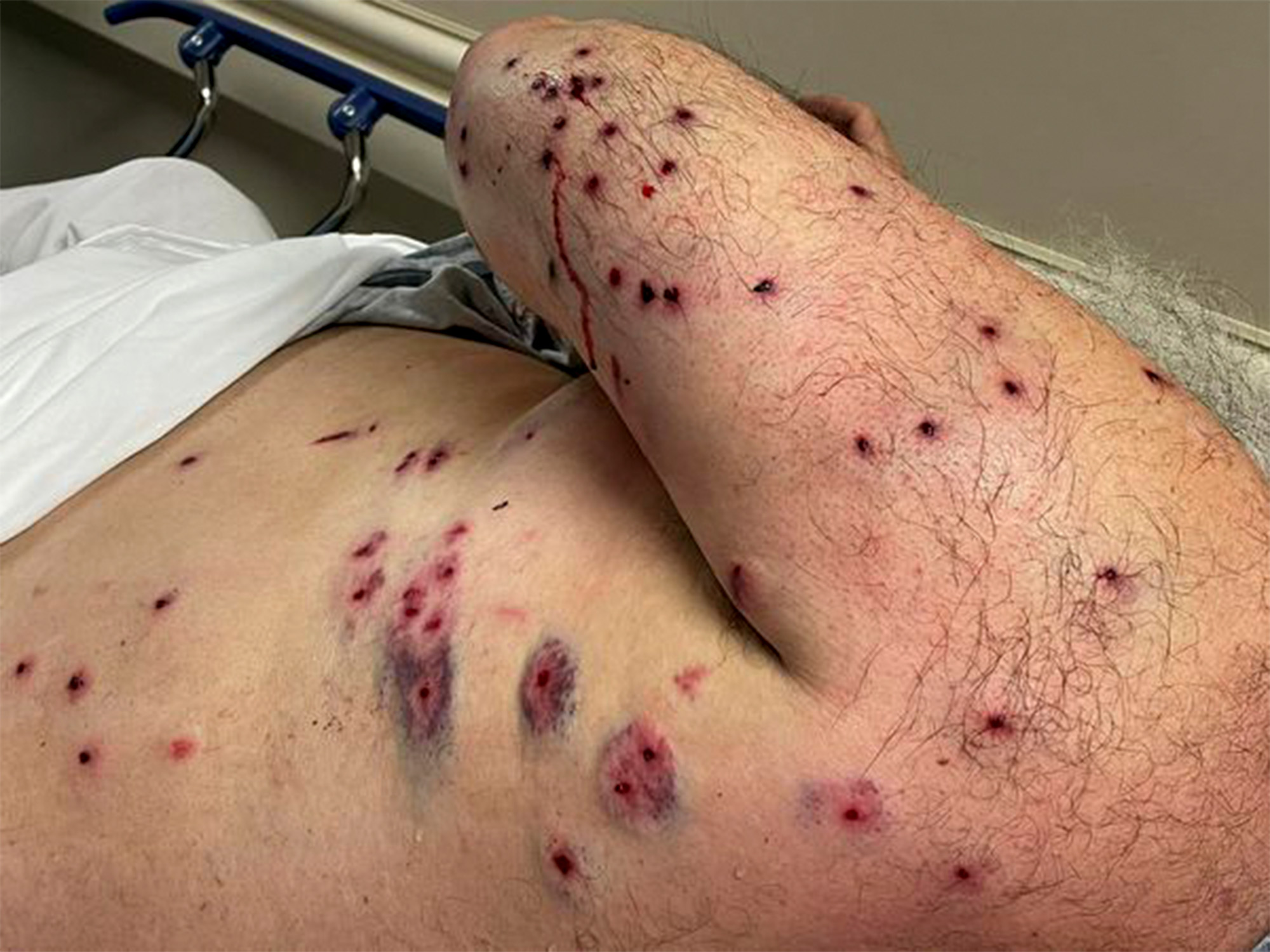
“Trying to work out a hunt for us but this happened,” his text read. “I’m fine. Just be careful out there.”
The accompanying photos brought to mind experiences I had in Iraq: a man lying on hospital sheets stained red, his pale skin rarely exposed to the sun now stippled by black-centered blooms. Like in Iraq, I wanted to know how, and why, it happened. How is often easy enough to explain. Why is a question not yet fully answered a month later.
A Gobbler and a Gun Blast
The morning his friend shot him, the two hunters were seated on the edge of a field in a thicket of mixed hardwoods and pine. Bunn says they’d been in the eastern Carolina hunting camp for four days and planned to stay for another few. Both men had already killed a turkey and that morning, Bunn planned to call in a bird for a man with whom he’s killed countless turkeys with. Bunn thought his partner, with more than 65 seasons behind him, appeared a little more tired and slower than usual while walking the half mile to the spot where they’d heard a gobbler the day before.
Around 6:20 that morning, April 12, Bunn helped his friend set up in the woodline, facing him toward a disked-up field. As sitting is uncomfortable for him, the 80-year old man stood behind a large longleaf pine. Bunn moved 20 to 30 yards deeper in the woods and directly behind his hunting partner. Knowing they were close to the bird’s roost, Bunn sat quietly until the gobbler made himself known, thundering forth from a nearby limb. Bunn began a series of tree calls he now believes may have confused his friend, though at the time he thought the soft yelps were too quiet for the hearing-impaired hunter to notice.
For 10 minutes the tom gobbled in multiple directions. This is another factor that Bunn believes may have led to his friend’s confusion about where the bird was located and how many toms were present. Perhaps that is why, at 6:30 a.m., Bunn’s hunting partner turned partially away from the bird, putting his back to the field where Bunn expected the turkey to pitch down. He then faced directly toward Bunn, who explains: “We’d hunted so much together. He doesn’t call. I’ve always set him up and always felt very safe around him not to turn around like he did.”
But for the next nine minutes while the turkey kept gobbling, the man faced away from the field and into the woods, where Bunn was seated. At 6:39 a.m., an increasingly concerned Bunn tried to call his friend on his cell phone to reorient him. There was no answer. The phone at the other end was on vibrate. His friend just kept staring at him.
Bunn had taken off his head net and hat to wave at his friend, and he was calling to him when he saw the Remington 1187 come up. With the muzzle on him, all seemed to be in slow motion. As the turkey kept gobbling, Bunn threw his hat and began shouting at his friend, who was looking through the optic on his shotgun.
“I knew it then. He was going to shoot me. I figured I had to just roll over and take it.”
Bunn rolled to his right, throwing his left arm over his head and neck as copper-plated No. 5 shot shredded his shirt and tore holes in his side.
“When I came up, I was really screaming and hollering, just burning all over,” Bunn says. “I knew I had to get out. My left arm and side were getting wet.”
Still, Bunn’s good nature was evident when we talked about the incident weeks later.
“You can’t write down everything I said. It was about every bad word I’ve heard in my life. A whole lot of them. But that got [his] attention. Thank God, he didn’t shoot me again, and thank God, it wasn’t TSS. We probably wouldn’t be talking.”
Aging Out of the Sport
On the whole, hunting safety seems to be on the rise. Nonetheless, the Carolinas saw at least two hunting fatalities this turkey season—one in Laurens County, South Carolina, and another in Perquimans County, North Carolina. While those cases, and Bunn’s, are still under investigation, Bunn believes aging and cognition are matters that merit discussion in the hunting community, especially since 38 percent of the participant population is over 55.
The Center for Disease Control calls “Subjective Cognitive Decline” a public health issue. SCD is “the self-reported experience of worsening or more frequent confusion or memory loss,” and it is prevalent among more than 22 percent of adults over 45. (It’s not clear if Bunn’s hunting partner has experienced anything like SCD, but Bunn feels strongly that fatigue and confusion played a role in this accident.) But what if we don’t recognize it? Or what if we do but don’t want to admit it to ourselves, much less anyone else? And if we do see signs of SCD, how do we tell a lifelong hunter that it might be time to put the guns away?
Read Next: What If Grizzly Bears Killed as Many Hunters as Treestand Accidents Do?
Discussions about age and infirmity are never easy. But just as you have to talk to your parents about giving up the car keys, it falls on us as hunters to have these hard discussions—and perhaps even more pointedly, the hard self-realizations about when it’s time to put down the gun. Bunn notes, however, that changing the way we hunt doesn’t have to mean quitting the sport.
“We just have to try to be responsible and take care of each other as we age as hunters and try to look out for each other,” he says. “I’ve known people who took their relatives to the woods and held the gun for them til it was time to shoot, then took it from them [after the shot].”
Still, Bunn says he has no magic words for how to approach these tough conversations.
“He shouldn’t have been hunting,” Bunn admits. “But you know how men are—hardheaded, can’t show weakness. Especially these mountain boys around here.”
The Takeaway
What then should we take away from this? And what do we owe our fellow hunters? I believe the answer is a willingness to discuss with an individual and their families when we think that person is no longer capable of hunting as they always have. Furthermore, we have to be honest about our own capabilities. It’s a fraught topic that requires a frank evaluation of ourselves and the people with whom we enter the woods.
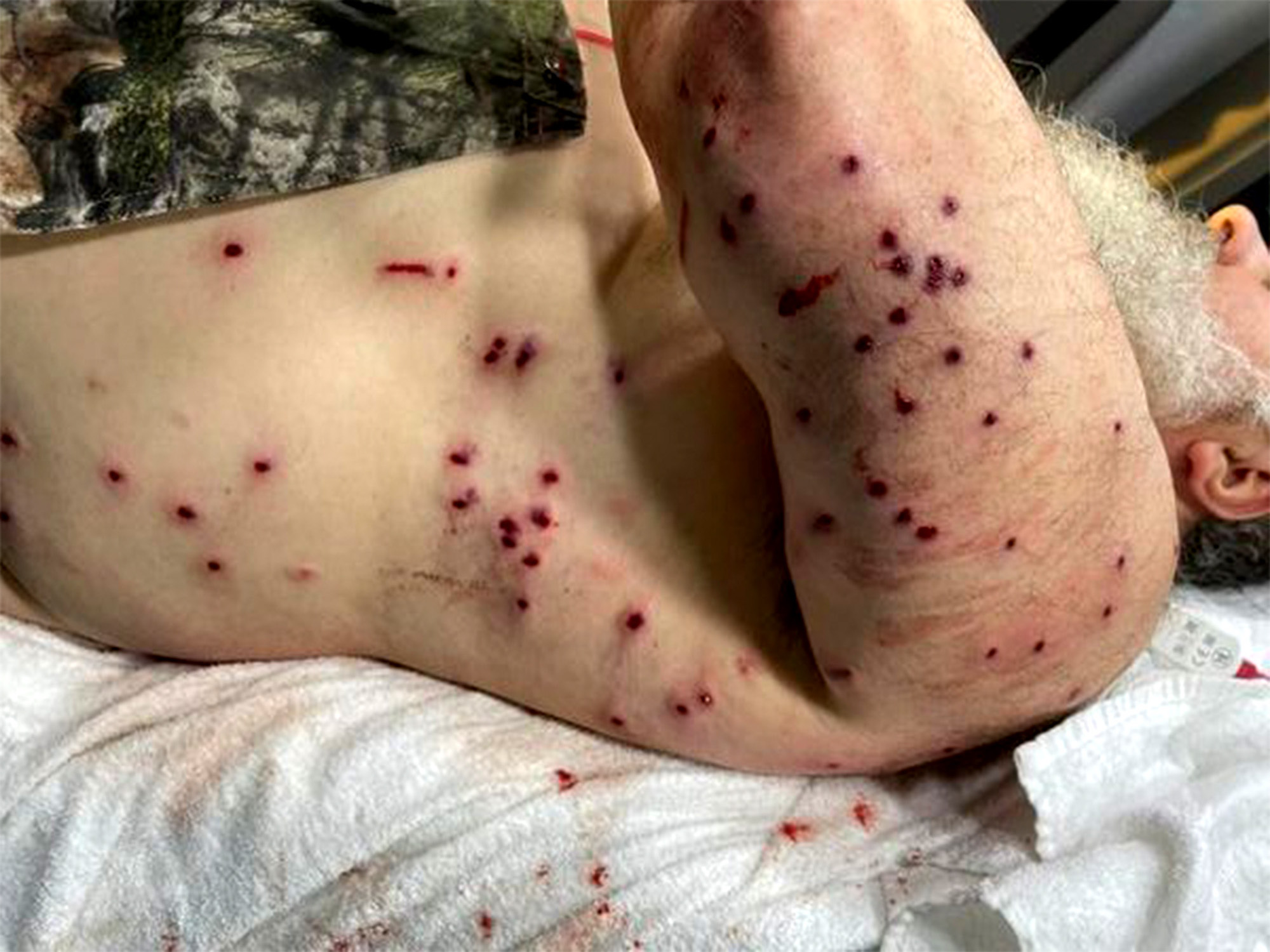
“I’ve always hunted with older people. But we have to eventually ask whether the reward is worth the risk we offer others,” Bunn says.
Of the man who shot him, whom he still loves and considers a friend, Bunn says: “We’ll work through it.” And when I assert that perhaps he’s more gracious than many might be to a man who shot him, he laughs: “You’ve been around me a bit. It takes a lot to get me torn up.”
That’s a reflection of his personality. But when asked if he’ll hunt with the man again, friend or not, Bunn is decisive.
“No. You don’t have to shoot me but one time.”
Back in the Middle of It
Less than an hour after the incident, Bunn was at the hospital in Kenansville, North Carolina, where medical staff dug approximately 30 pellets out of his left side and arm. A week later a hunting buddy and surgeon took out another 19 after his arm had blackened substantially.
Bunn posted about the issue on his Facebook page, writing: “Hunting and shooting is serious as hell…There were no decoys out no tail fans carried no wing feathers. Just me calling and movement. Please look for signs of fatigue in older hunters and any strange behavior in any age hunters you may be sitting with…I have been hunting for wild turkey [for] 41 years. I have had a few close calls with other hunters as the majority of the time I have hunted public land…The man that shot me was hunting with me and we have hunted many years together safely. Father Time catches up with us all…Please take a lesson from this. Don’t ignore changes or unusual behavior in your hunting partners. We all need to be good to each other and take care of each other.”
It’s an issue that clearly struck a chord. People have shared Bunn’s post almost 8,000 times. Roughly 2,200 people felt compelled to comment.
Read Next: In Good Company: A Texas Turkey Hunt with Familiar Strangers
I worried the incident might keep even a lifelong hunter out of the woods, and Bunn acknowledges he’s thought about the morning a lot, “playing the tape in my head, looking at what and why.” But as far as keeping him from doing what he loves, he tells me: “Three weeks ago I got hauled to the hospital in an ambulance. Today I hauled a turkey out of the woods on public land. I’m right back in the middle of it.”
I don’t need to ask why. Because Raymond Bunn is a hunter. And he is mountain.
